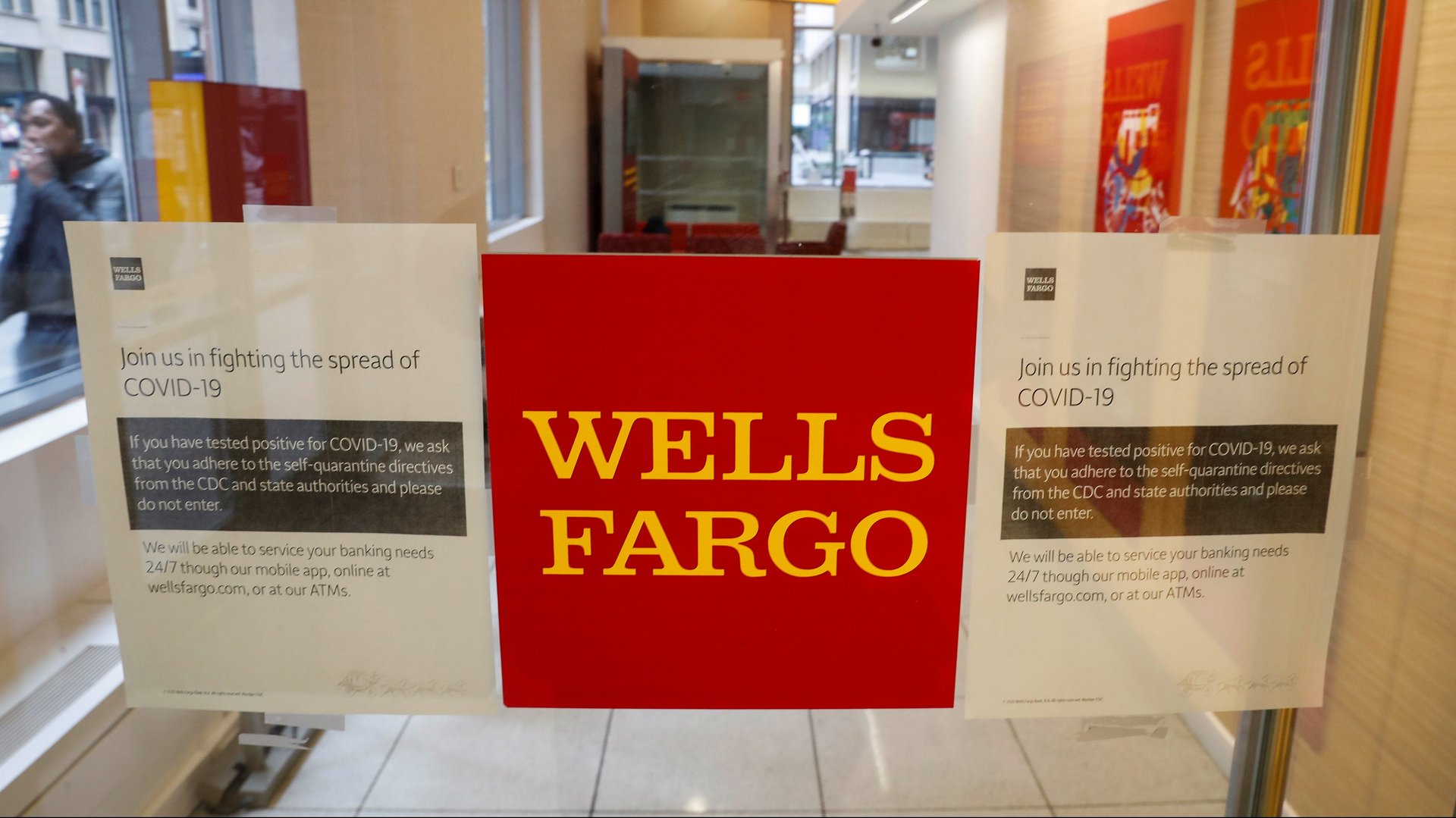How the coronavirus has hit the biggest US banks, in five charts
Banks are about to get walloped by the coronavirus pandemic.


Banks are about to get walloped by the coronavirus pandemic.
Stock prices for the banking giants have leveled off after plunging last month as the number of Covid-19 cases increased exponentially and governments lockdowns ensued. Officials are injecting fiscal and monetary steroids to try and avert an even deeper recession, providing aid that could hopefully cut down on missed payments, from credit cards to mortgages, and prevent the bottom from falling out of the economy.
This week the largest US lenders reported first-quarter earnings, giving us some insight into how these financial institutions are preparing to withstand the turmoil. To endure a wave of soured loans and missed payments, the big American banks have stashed away $24 billion of loan-loss provisions as of the first quarter, almost five times as much as in the previous period, according to FactSet data.
For banks, the severity of losses will depend greatly on whether government programs are able to preserve businesses threatened with bankruptcy and help people re-enter the workforce. “The key, obviously, is being able to bridge people back to employment,” JPMorgan CFO Jennifer Piepszak said this week.
Bank deposits are soaring. That’s in part because investors are selling risky assets and holding those funds in their bank accounts, and also as corporate clients draw down their credit lines and hold the cash with the banks. Bank of America CEO Brian Moynihan said this week that deposits in its global banking division shot up by $94 billion in the first quarter, “which is unusual for sure.”
The cost of insuring against a default by US banks like JPMorgan and Bank of America is almost back to where it was at the end of February, according to credit-default swap prices compiled by IHS Markit. Credit swaps, a type of default insurance, allow derivatives traders to hedge or speculate on creditworthiness. Swaps linked to European banks like Italy’s Unicredit and Germany’s Deutsche Bank remain much more elevated.
The change in credit swaps suggests derivatives traders are optimistic that government aid will successfully support bank customers and the broader economy. But European GDP is expected to contract even more than than the US this year, and there are concerns about the strength of the euro area’s banking sector.
Trading was a bright spot during the first quarter for the big US banks, as stock and bond market volatility soared and trading volumes boomed. One of the ways Wall Street firms make money is by quoting bids and offers on securities, and profiting on the spread between those prices. That spread widened in March as uncertainty and volatility in the markets skyrocketed.
David Solomon, the CEO of trading powerhouse Goldman Sachs, said roughly 98% of its employees are working remotely, yet they managed to handle as much as three times the trading volume they usually do. “There’s no guarantee, obviously, that continues as we go through the quarter,” Solomon said this week of the heavy trading volume. “But in the early part of the quarter, we’ve seen our investing clients continue to be very, very active.”